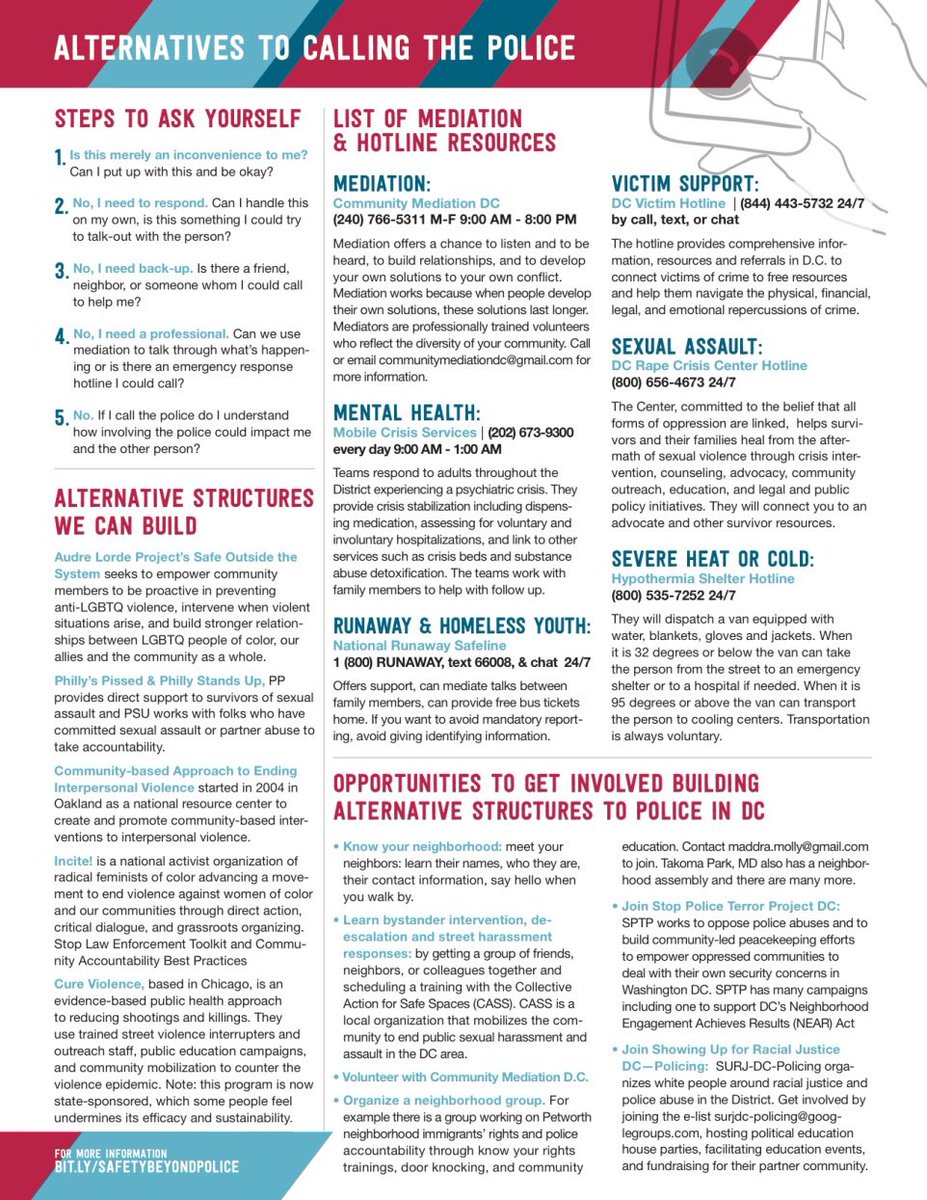What to do instead of calling the police: a guide for the whites.
1. Know your Neighbors! Spend time meeting and building relationships with your neighbors. Exchange contact info. Many neighborhood conflicts can be resolved easily by contacting the right neighbor.
1. Know your Neighbors! Spend time meeting and building relationships with your neighbors. Exchange contact info. Many neighborhood conflicts can be resolved easily by contacting the right neighbor.
2. Don’t feel obligated to defend property—especially corporate “private” property. Before confronting someone or contacting the police, ask yourself if anyone is being hurt or endangered by property “theft” or damage. If the answer is “no,” then let it be.
3. If something of yours is stolen and you need to file a report for insurance or other purposes, consider going to the police station instead of bringing cops into your community. You may inadvertently be putting someone in your neighborhood at risk.
4. Research and develop a list of hotlines and resources to contact first before calling the police. Share with your community. Ideally make it a live doc that everyone can update.
Find resources and hotline numbers for the following
-Mediation
-Mental Health
-Victim Support
-Sexual Assault
-Severe Heat or Cold
-Undocumented Immigrant Help
-BilingualHotlines
-Human Trafficking. National Human Trafficking Hotline (888) 373-7888 24/7 200+ languages.
-Mediation
-Mental Health
-Victim Support
-Sexual Assault
-Severe Heat or Cold
-Undocumented Immigrant Help
-BilingualHotlines
-Human Trafficking. National Human Trafficking Hotline (888) 373-7888 24/7 200+ languages.
5. If you observe someone exhibiting behavior that seems “odd” to you, don’t assume that they are publicly intoxicated. A traumatic brain injury or a similar medical episode may be occurring. Ask if they are OK, if they have a medical condition, and if they need assistance
6. If you see someone pulled over with car trouble, stop and ask if they need help or if you can call a tow truck for them. If the police are introduced to such a situation, they may give punitive and unnecessary tickets to people with car issues, target those without papers
7. Check your impulse to call the police on someone you believe looks or is acting “suspicious.” Is their race, gender, ethnicity, class, or housing situation influencing your choice? Such calls can be death sentences for many people.
8. If your neighbor is having a party and the noise is bothering you, go over and talk to them. Getting to know your neighbors with community events like monthly block parties is a good way to make asking them to quiet down a little less uncomfortable
9. If you see someone peeing in public, just look away! Remember, for example, that many houseless people do not have reliable access to bathrooms.
10. Hold and attend deescalation, conflict resolution, first-aid, volunteer medic, and self-defense workshops in your neighborhood, school, workplace, or community organization.
11.Remember that police can escalate domestic violence situations. U can support friends and neighbors who are being victimized by abusers by offering them a place to stay, a ride to a safe location, or to watch their children. Utilize community res. like safe houses & hotlines.
Most importantly.... just mind your business if you or persons are not being harmed.
Link to article where I got these points:
https://theresponsibleconsumer.wordpress.com/alternatives-to-calling-the-police/">https://theresponsibleconsumer.wordpress.com/alternati...
https://theresponsibleconsumer.wordpress.com/alternatives-to-calling-the-police/">https://theresponsibleconsumer.wordpress.com/alternati...

 Read on Twitter
Read on Twitter



